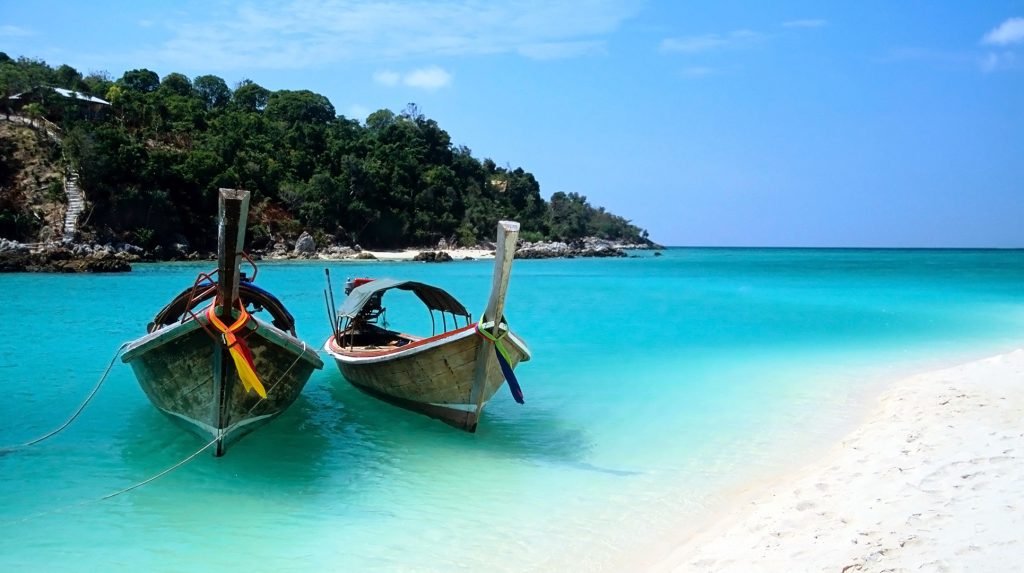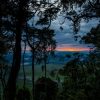
Zanzibar is an autonomous administrative division under the national government of Tanzania. It is geographically distinct from the mainland. It is an island steeped in history and culture and brought together adventurers, traders, and seafarers from wide and far. It is an exotic and spicy island with an amazing image. Zanzibar is an archipelago with more than 50 Islands that range from small outcrops to large and populated islands of Zanzibar (Unguja and Pemba). For hundreds of years, traders and tourists have eulogized Zanzibar’s coral beaches, spices, and bustle of its capital-Stone town.
History
Zanzibar has a great history that was slapped by its geography and its position in the region with the Indian Ocean trade routes that made it accessible to traders and colonists from South Asia, Arabia, and the Main Land of Africa. The island was occupied by Africans who migrated to the island and the Persians who landed at the Island in the 10th Century and were later absorbed into the locals and disappeared. They left a big influence on the rural population, like people converting to Islam, and adapting to different Persian traditions. When the Arabs from Oman, set foot on the island, they left the biggest influence on Zanzibar.
The position of the Island made it a perfect entry port for Arabs doing slave trade expeditions and oceangoing commerce. The Arabs established colonies and buildings on the island and became the highest class of people in Zanzibar.
In the 16th Century, the Portuguese conquered the seaports on the East African Coast like Mombasa and other powerful towns and islands including Zanzibar. Their purpose was to a larger extent commercial and in the 17th century, their power at the coast dwindled leaving a few marks of their stay after, the Oman Arabs took over control of the region and even freed the then ruling Sultan, Said Ibin Sultan to relocate his capital from Muscat to Zanzibar.
In the 18th and 19th centuries, Zanzibar was a central area for slave and Ivory trade routes into the interior of Africa, and visitors to the Island can still visit the former slave market site to learn about the trade. Stone town which is Zanzibar’s capital and doubles as a World Heritage Site. It is a prominent historical and artistic town with Architecture dating back to the 19th century, bustling market places, mosques, Arab residences, etc. It is not just history but also the commercial and social area in Zanzibar.
The Allures of Zanzibar
Beaches
Zanzibar is a great destination for post-safari relaxation for chilled beach holidays. It has a variety of many stretches of white sand beaches to choose from. Some are justifiably favored, mostly those on the East Coast and the northern tip. Each has its personality of what it offers. Paje Beach in the southeast is famous for Kite surfing and Diving and has all rankings of a perfect beach, long palm trees, which sway in the ocean breeze, and turquoise waters. Pongwe Beach is a tropical paradise and has calm waters for swimming. It is arguably the best swimming beach on the island. It is palm-dotted and backed by dense vegetation. Matemwe Beach is a section of the coast in the North East. Here are traditional fishing villages, offering insight into local culture, scuba diving, and snorkeling. Kizimkazi Beach, on the south coast, is famous for dolphins. Kendwa Beach is a quiet beach and a tide one. It has clear waters, colorful starfish, and legendary sunsets, and is perfect for swimming. The North West’s Nungwi Beach is one of Zanzibar’s most beautiful and popular beaches. It is lively with numerous beach resorts, hotels, restaurants, and nightlife. The Michamvi Beach on the other hand is a peninsula on the central east coast. It is remote and has long stretches of sandy beaches. It is a paradise for privacy and romance since it is less crowded.
Lastly, Bwejuu Beach is a perfect area for relaxation and reef tours. It is a top choice for those seeking total relaxation, peace, and privacy. It has plenty of activities and excursions from here like dhow boat trips, diving, and boat rides to different islands.
The above are some of the best beaches on the Island though not the only ones.
Stone Town
The rich beauty of the history of Zanzibar is in the fascinating Stone town. It bursts with the Swahili atmosphere, charming and enchanting life of an African city. Built-in the 19th century, the town remain not so changed. It has a network of narrow passages/alleys that lead to mosques, palaces, old Arab houses, tiny shops, early morning markets like the famous one at the Creek road, fragrant spice stalls, and fruit stalls. It is best explored on foot.
There is plenty to do and see in Stone town: You can contemplate the history of the area at the Old fort, visit the former Sultan’s palace museum (Beit al-Shahel), visit the former slave market at the UNESCO Museum, or do a day trip the prison Island where the rebellious slaves and yellow fever patients would be quarantined. The island now hosts a sanctuary for endangered giant tortoises.
Note: Remember to dress conservatively and decently when walking through the town since it is a more Muslim community. Men should wear pants, women should wear long skirts or a trouser and cover their shoulders.
Jozani Forest Reserve
The Jozani Forest was first established as a Conservation Area in the 1960s but now the forest is part of Jozani Chwaka Forest National Park. It is a sanctuary for some of Africa’s rarest primates like the Kirk’s red colobus monkeys. The forest/park has a network of trails and experienced guides with knowledge about the reserve’s flora and fauna will take you around for a tour. As you walk around, keep your eyes open for some of the residents like the Sykes, Monkeys, bush pigs, hyraxes, and over 40 bird species. You can also visit a group of the two habituated groups of colobus monkeys.
South of the forest, you can take a walk deep into the mangroves on a boardwalk and learn about this ecosystem.
Spice tours
Spices have a great history in Zanzibar and in the bygone days, they (spices) dominated the island’s economy. The islands exports spices like cloves, nutmegs, vanillas, and cardamom among others across the globe. The spice tour is one of the popular excursions on the island where you walk through the plantations as you learn, touch, taste, and smell different spices. Spices were introduced to Zanzibar in the 16th century by Portuguese traders from their colonies in South America and India.
Snorkeling and diving
North East Zanzibar Shore waters, are excellent for diving and are rich with coral reefs, and have unique tropical fish. The area gives a great insight into the underwater world by involving Scuba diving. The waters have great temperatures (about 27o C) and visibility of between 20-60m and divers can go as deep as 150m (experienced divers). There are trained experts for diving that will help you to engage in the activity.
So, when planning to travel to Tanzania, don’t miss the slice of history, peace, and tranquility the Islands of Zanzibar have to offer. Experience the diverse Marine Life, walks, relaxation, culture, and history. Contact us for customized Journeys to Zanzibar and Tanzania.
-
Extended Gorilla Watching Experience November 9, 2023
-
Nyungwe National Park Now a UNESCO World Heritage Site September 29, 2023
-
Flying Safaris in Uganda September 11, 2023



